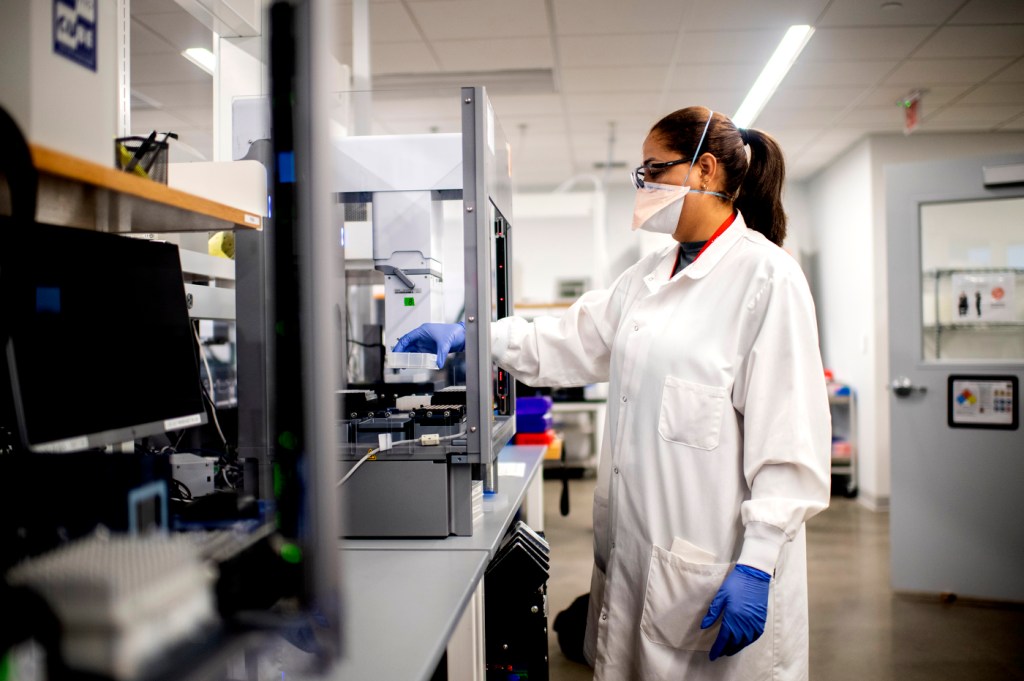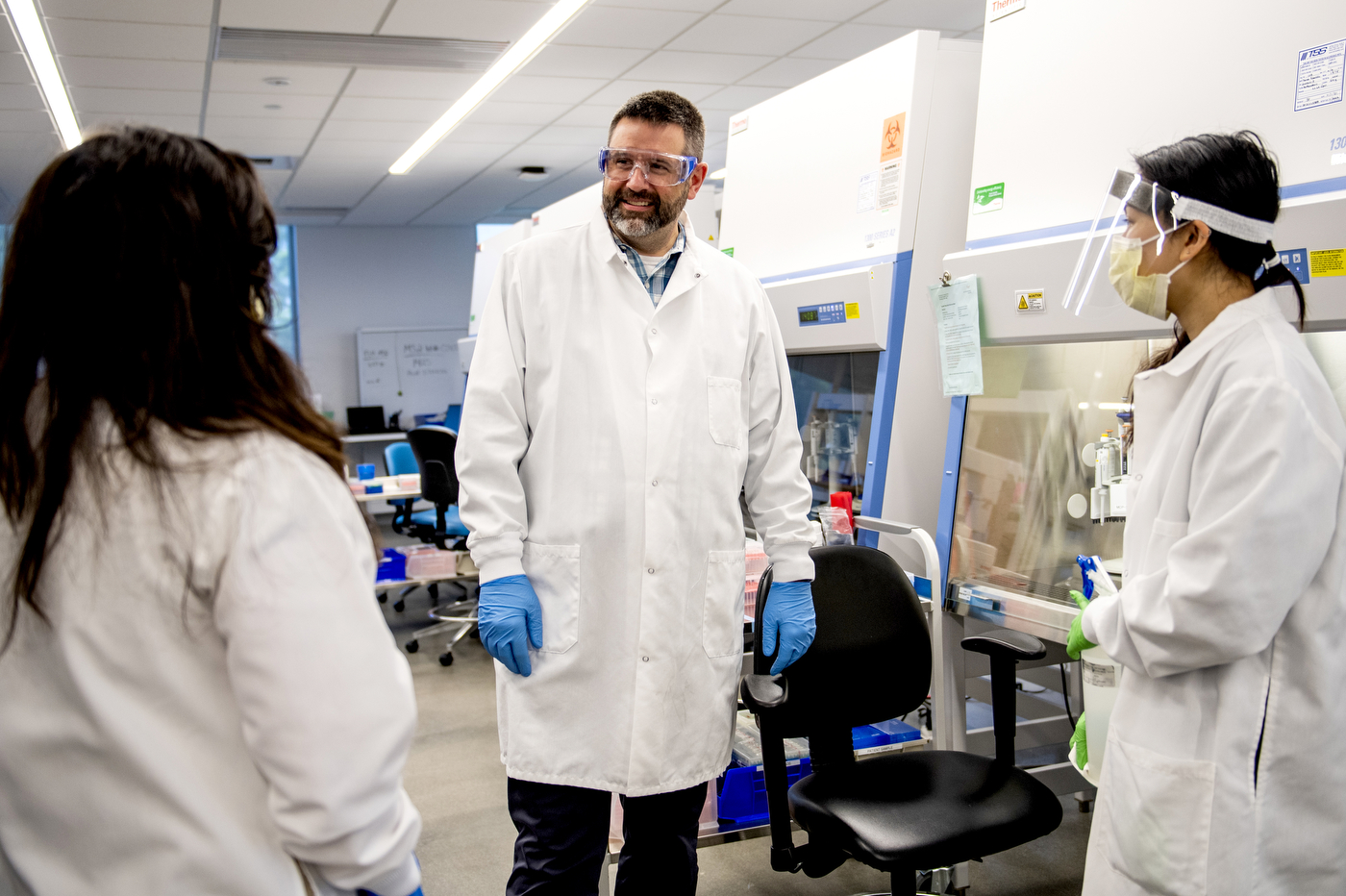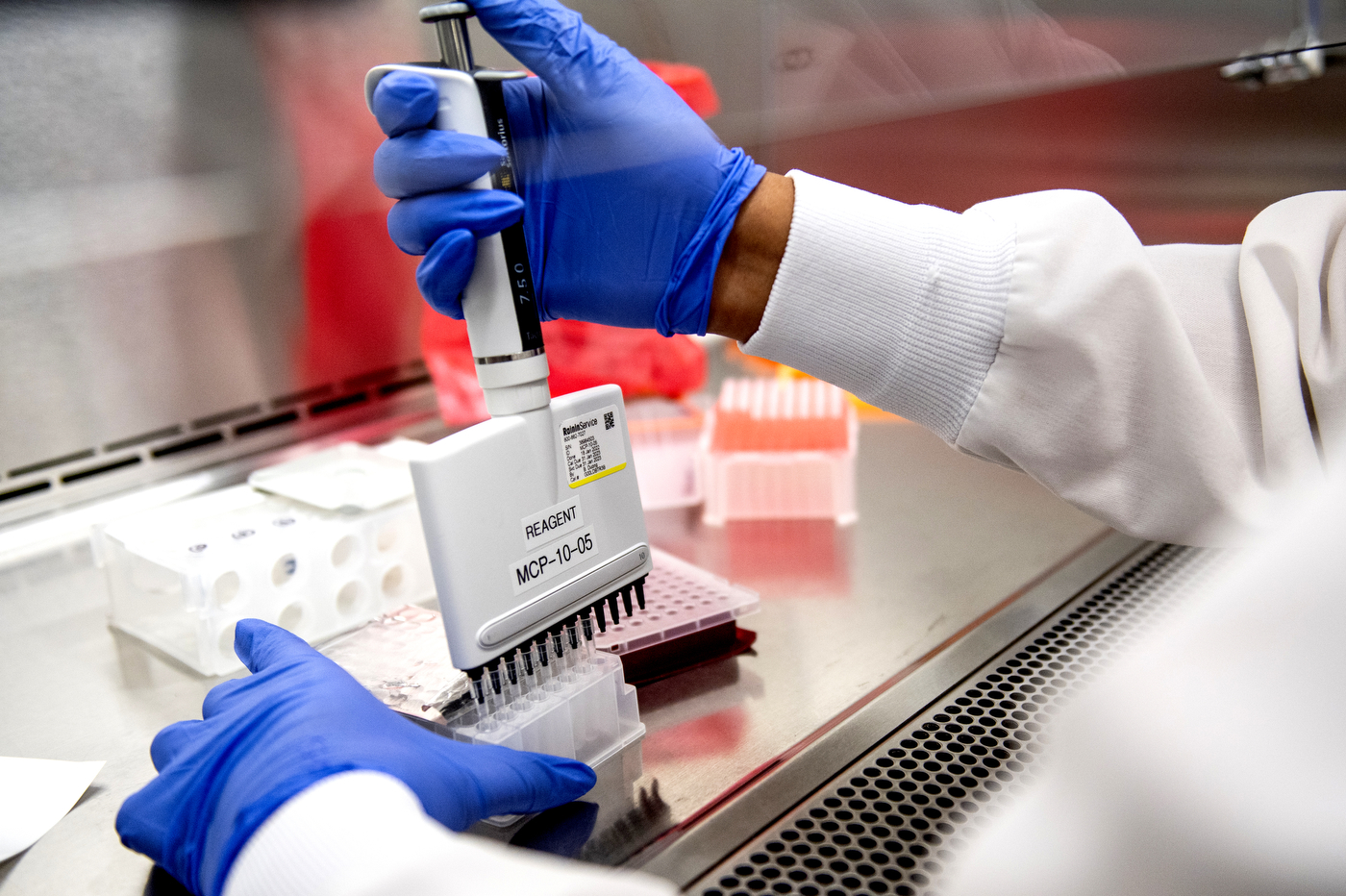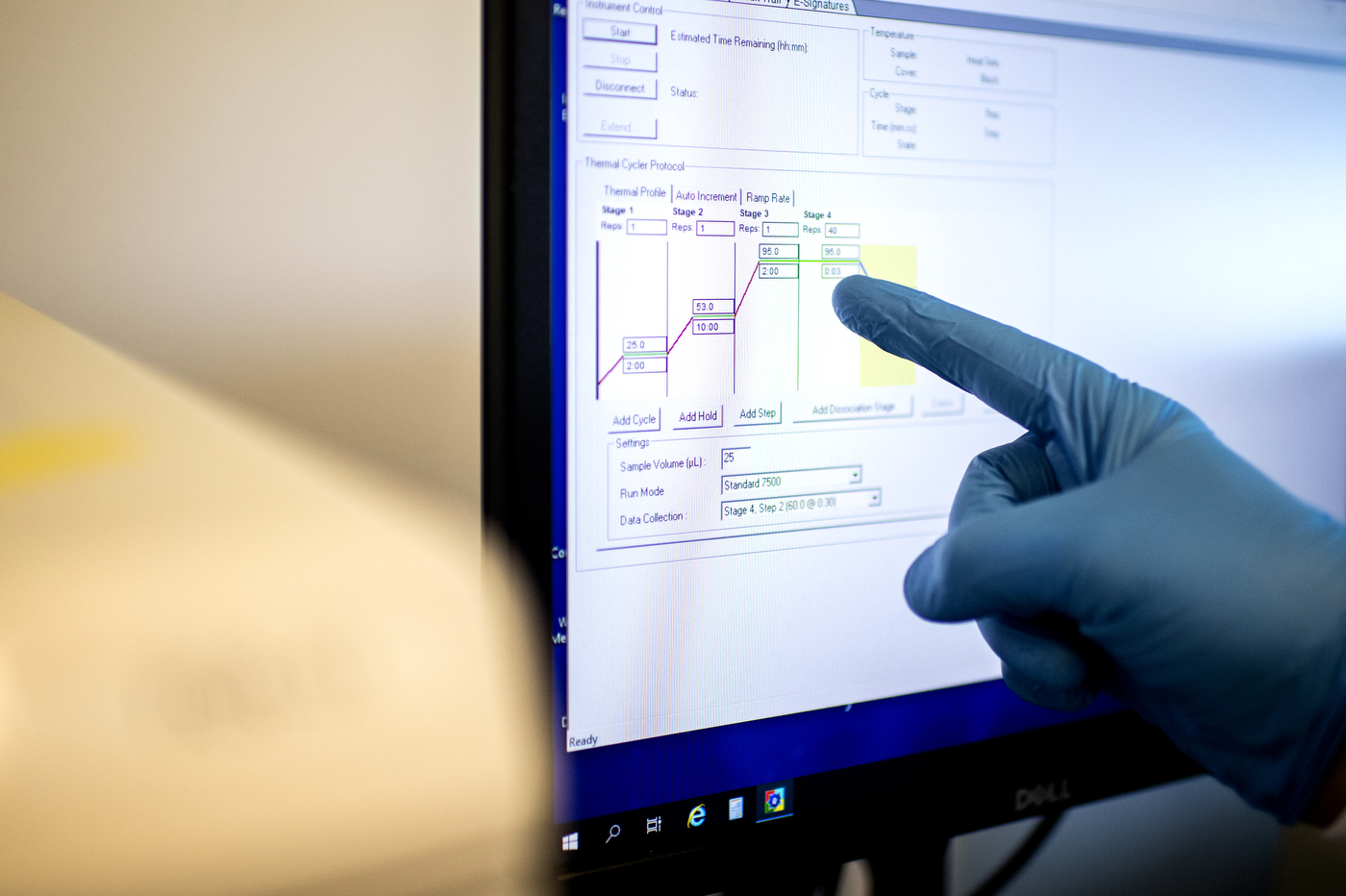Northestern’s Life Sciences Testing Center is helping a Boston biotech company develop best practices for monkeypox testing

If Jared Auclair has his way, his lab at Northeastern University will help ensure that the U.S. is never again caught off guard by an emerging pathogen like COVID-19.
Auclair, technical supervisor of the university’s Life Sciences Testing Center, and his team are working with the Boston biotech company Ginkgo Bioworks to develop a system to test samples collected at airports and other places of entry to the country for monkeypox.
The process is serving as a test case for a partnership that could result in Northeastern University playing an important role in national biosurveillance and biosecurity programs, Auclair says.
“We’re thinking about a national infrastructure of response to future pathogens. We’re really thinking of what is entering the country and how we can monitor it,” he says.

“One of the most important parts of surveillance is response time,” Auclair says.
“If we see a report of a pathogen starting to come through the country like we saw with COVID in Seattle or monkeypox overseas, how quickly can we respond?”
In the case of monkeypox, the answer is two weeks.
That’s how long it took the Life Sciences Testing Center to validate a test for monkeypox, says Auclair, who is also associate dean of professional programs and graduate affairs in Northeastern’s College of Science and director of Northeastern’s Biopharmaceutical Analysis Training Laboratory.
He says if Ginkgo goes ahead with a monkeypox surveillance program, the biotech company would be in charge of collecting samples for testing “where you would see places of entry to the country,” such as airports. The Life Sciences Testing Center in Burlington would run the tests on the pooled samples.
The idea is to develop an early warning system for pathogens entering the country, Auclair says. “It is population level surveillance.”
So far, the World Health Organization says, monkeypox outbreak has infected more than 18,000 people in 78 countries, but has resulted in only a handful of deaths. About 10% of people infected are hospitalized to deal with pain caused by the illness.
All five deaths were in Africa, Reuters reported July 20, although the majority of the cases are clustered in Europe, according to the WHO, which July 23 declared the monkeypox outbreak a global emergency.
The Centers for Disease Control says that as of July 26, there were 3,591 cases in the United States, including 96 in Massachusetts and 900 in New York state.
Symptoms include fever, headache, muscle aches and backaches, chills, exhaustion, swollen lymph nodes and a rash that can look like blisters or pimples.
Unlike what happened with COVID-19, also known as SARS-CoV2, a quickly activated monkeypox surveillance and testing program could slow the progression of the virus early in the outbreak by putting public health measures in place, Auclair says.
He says his lab first partnered with Ginkgo during the COVID-19 pandemic, when the Life Sciences Testing Center became a member of the Ginkgo Clinical Lab Network.
Through Ginkgo and other partners outside the university, Auclair’s lab tested pooled samples from Maine public school districts and, at one time, the Chicago school district, for COVID-19.
The relationship with Ginkgo has evolved since then into a joint project to conduct biosurveillance on monkeypox and whatever emerging pathogen might pose the next serious health threat in the U.S., Auclair says.


Ginkgo “responds to outbreaks in real time by preparing for surge capacity—so that additional testing is available if needed if an outbreak grows quickly,” says Karen Hogan, senior director at Concentric by Ginkgo, the biosecurity and public health arm of the company.
She says Ginkgo works with lab partners like Northeastern “to make sure that capacity is ready to go.”
“Our lab network is a mix of academic and industry labs. This is a great model, as we get to work with leading researchers and laboratories to develop new methods and launch them at scale for public health,” Hogan says.
“From day one, Jared and his team have been invaluable partners as we worked to grow our capacity to help our communities fight COVID locally and nationally,” she says.
“(Auclair) is smart and hard working and the team he has built is that and much more. They turned on COVID testing services almost overnight and have maintained a high level of quality and performance. We enjoy working with them and plan to expand our work to fight COVID and more in service of public health,” Hogan says.
Auclair says monkeypox is different from COVID-19 in that it is a DNA rather than an RNA virus, making it more difficult to mutate into variants.
“Monkeypox is not contagious through the air. You have to come in contact with bodily fluid,” he says.
Even so, monkeypox joins COVID-19 as a viral illness that meets WHO’s definition of a health emergency. The Washington Post says WHO named the coronavirus pandemic a global crisis in early 2020.
The Post says that officials hope the emergency designation will help stop the outbreak, which so far has been centered in men who have sex with men.
The Washington Post says the Biden Administration is considering declaring the monkeypox outbreak a national emergency. The administration also is planning to announce a White House coordinator to respond to the surge in cases.
It is inevitable that monkeypox will be followed by some other global health concern, Auclair says.
“It’s really important to monitor the pathogens that are coming in and out of the country so we can respond appropriately, which could include treatments and therapies or vaccines. It could include the ability to activate our healthcare system as opposed to having to be so reactive during COVID,” he says. “We can be more proactive.”
